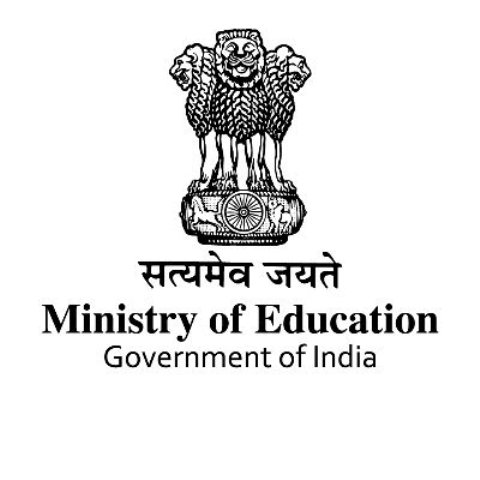ABSS 2025 to Mark Five Years of NEP with Vision for Future-Ready Education
The One Nation One Subscription (ONOS) initiative has enabled access to nearly 13,000 e-journals across 6,300 institutions, enriching the research ecosystem nationwide.

- Country:
- India
In a landmark celebration of five years since the rollout of the transformative National Education Policy (NEP) 2020, the Ministry of Education is hosting the Akhil Bharatiya Shiksha Samagam (ABSS) 2025 today at Bharat Mandapam, New Delhi. This flagship summit, one of the most significant educational gatherings in the country, brings together academicians, policymakers, educators, researchers, industry leaders, and government officials to assess the impact of NEP 2020 and to chart a roadmap for India’s next phase of education reforms.
The day-long summit will be inaugurated by Union Education Minister Shri Dharmendra Pradhan, and will feature high-level thematic discussions, exhibitions, and policy dialogues aimed at strengthening India's education ecosystem and accelerating progress toward national goals such as 50% Gross Enrolment Ratio (GER) in higher education by 2035 and 100% GER in secondary education by 2030.
Five Years of NEP 2020: A Transformational Journey
Since its adoption in July 2020, the National Education Policy has radically reshaped India's education framework, from preschool to postgraduate levels, introducing principles of flexibility, multidisciplinary learning, digital integration, and inclusivity. ABSS 2025 will showcase the milestones achieved and the remaining journey towards full policy realisation.
Higher Education: Flexibility and Technology Take Center Stage
Key accomplishments in the higher education sector over the last five years include:
-
National Credit Framework (NCrF): Adopted by 170 universities, this framework facilitates seamless movement between academic, skill-based, and experiential learning tracks.
-
Academic Bank of Credits (ABC): Over 2,469 institutions onboarded, with 32 crore APAAR IDs issued and 2.36 crore IDs seeded with credits, enabling credit mobility and modular learning.
-
Multiple Entry/Exit Systems: Implemented in 153 universities, empowering students with flexibility in program completion.
-
Biannual Admissions: Approved by UGC, helping institutions align with international standards and increasing access.
Technology Integration in Higher Learning
-
116 institutions offering 1,149 ODL programs have reached 19 lakh learners.
-
107 universities now offer 544 online courses, while 388 universities accept credits through SWAYAM, which now supports credit transfer up to 40%.
-
SAMARTH, a digital governance platform, has enabled over 13,000 HEIs across 440 districts to digitize processes like admissions, academic records, and fee payments.
-
The Malaviya Mission Teacher Training Programme (MMTTP) has trained 2.5 lakh faculty members across 3,950 training programs, enhancing capacity in AI, cybersecurity, mental health, and entrepreneurship.
The One Nation One Subscription (ONOS) initiative has enabled access to nearly 13,000 e-journals across 6,300 institutions, enriching the research ecosystem nationwide.
School Education: Equitable, Inclusive, and Foundationally Strong
The Department of School Education and Literacy (DoSEL) has driven impactful reforms across the school education system:
-
14.72 lakh schools, 98 lakh teachers, and 24.8 crore students have been reached through NEP-aligned initiatives.
-
Foundational learning has improved substantially under the NIPUN Bharat Mission, as seen in PARAKH Rashtriya Sarvekshan 2024 and ASER 2024.
-
The ULLAS adult education scheme has empowered 2.60 crore learners and 42 lakh volunteers, with Ladakh, Mizoram, Goa, and Tripura achieving full literacy under the program.
Strengthening Assessment and Monitoring
-
PARAKH Survey (2024) covered 21.15 lakh students in 74,000 schools.
-
National Achievement Survey (NAS) 2021 assessed 34 lakh students.
-
State Educational Achievement Survey (SEAS) reached 84 lakh students in 4 lakh schools.
School Nutrition and Model Schools
-
Under PM POSHAN, school nutrition gardens have been established in over 6.28 lakh schools.
-
PM SHRI Schools: 13,076 schools have been selected to serve as NEP 2020 exemplar institutions.
-
SWAYAM PRABHA: From 12 channels to 200 DTH channels, broadcasting over 26,662 hours of educational content in 30 Indian languages.
ABSS 2025: Charting the Next Phase of Reform
The summit will host plenary sessions and policy roundtables addressing critical themes:
-
Use of Bharatiya Bhasha in Teaching and Learning Promoting mother-tongue and regional language instruction for inclusive learning.
-
Anusandhan and PM Research Fellows (PMRF) Strengthening the pipeline of academic and industry leadership through research funding.
-
Re-envisioning Secondary Education Strategic interventions to reach 100% GER by 2030, especially in underserved regions.
-
AI and Emerging Technologies in Education Establishment of Centres of Excellence (CoEs) for AI in Education, transforming pedagogy and learner engagement.
Focus on Future-Readiness, Industry Collaboration, and Sustainability
The deliberations will emphasize:
-
Industry-academic partnerships to refine skill pathways.
-
Expansion of digital learning infrastructure and equitable device access.
-
Green education initiatives embedding sustainability and climate consciousness in school and university curricula.
-
Focused policy support for vocational education integration and holistic report cards to reflect comprehensive student growth.
“ABSS 2025 will not only celebrate five years of transformational progress but also lay the foundation for India’s education system to lead globally in innovation, equity, and excellence,” said a senior official of the Ministry of Education.
A National Education Renaissance
With the NEP 2020 as a guiding compass, ABSS 2025 is expected to reaffirm India’s commitment to nurturing a self-reliant, skilled, and inclusive education system. The policy has laid the groundwork for bold reforms—and the nation now looks to strengthen its future workforce, empower grassroots innovation, and foster a generation of learners prepared for global leadership.










